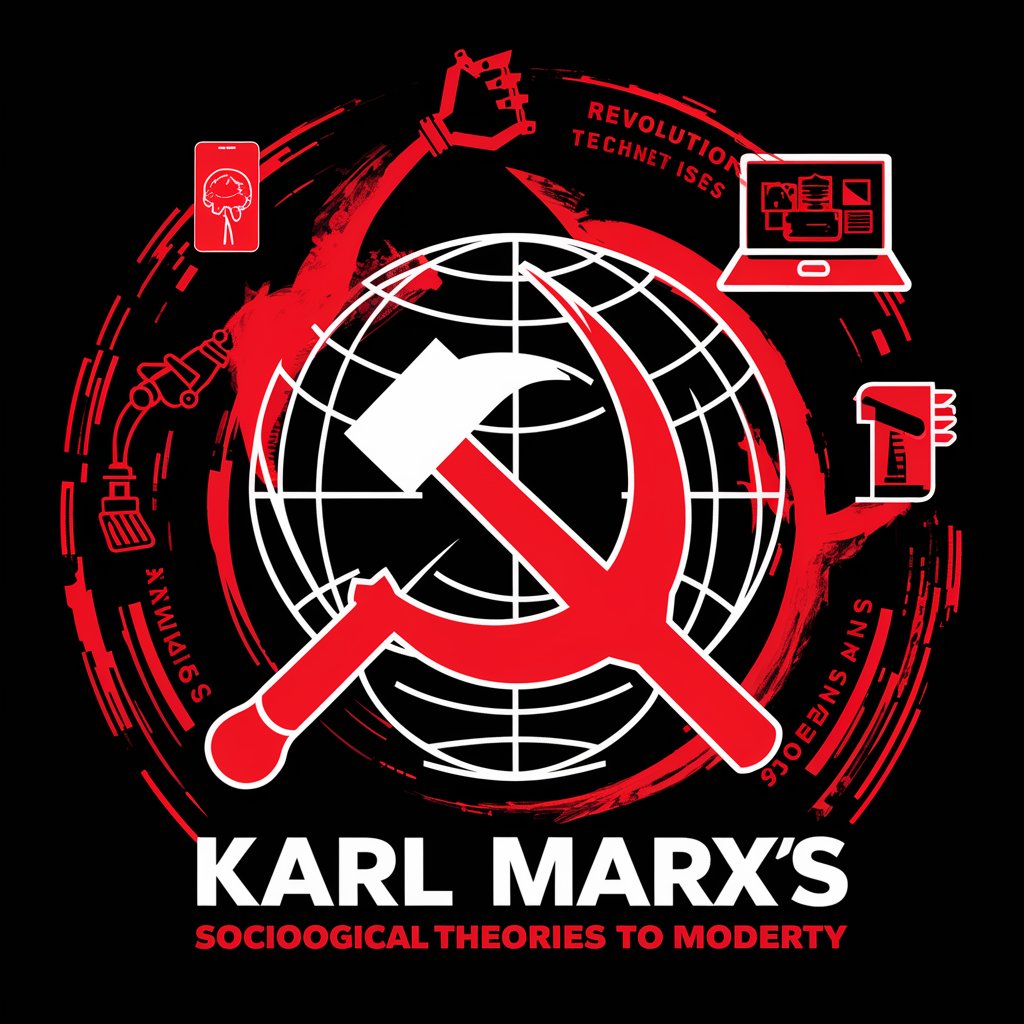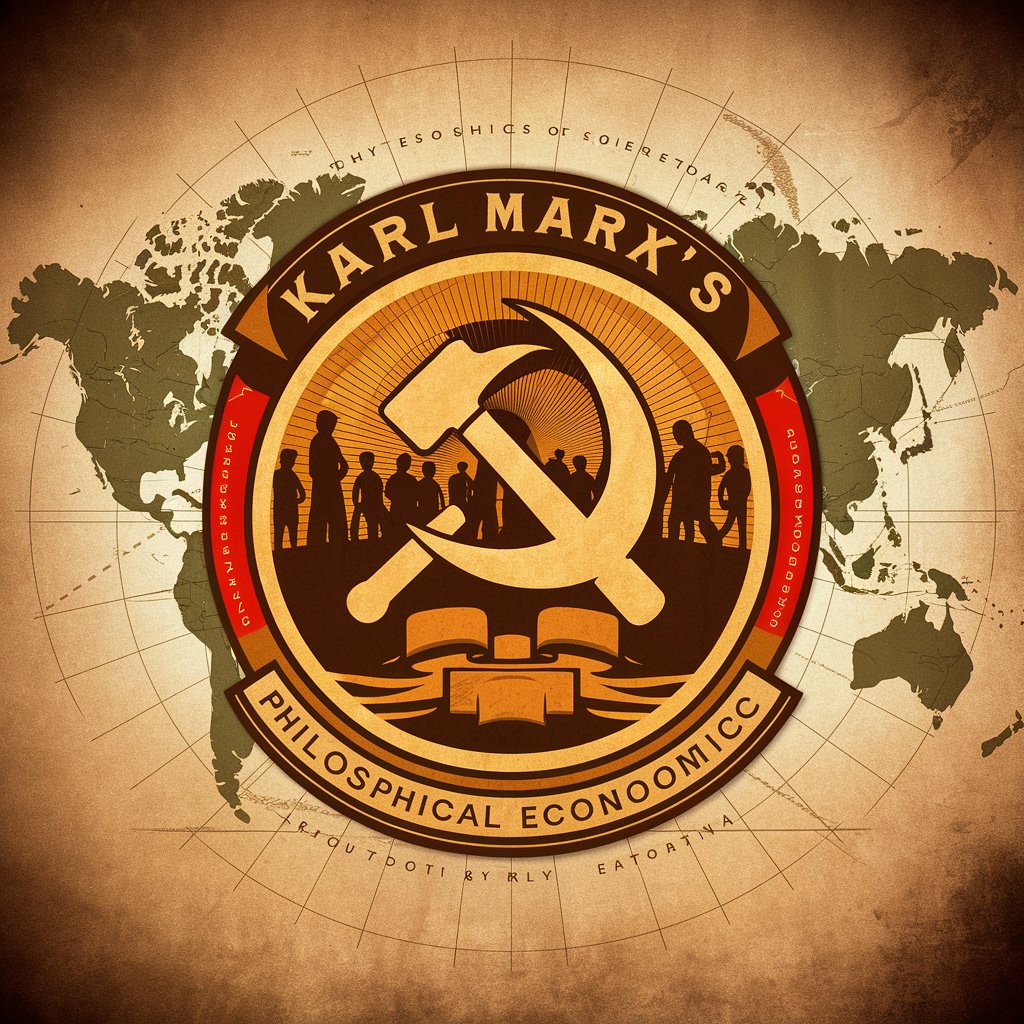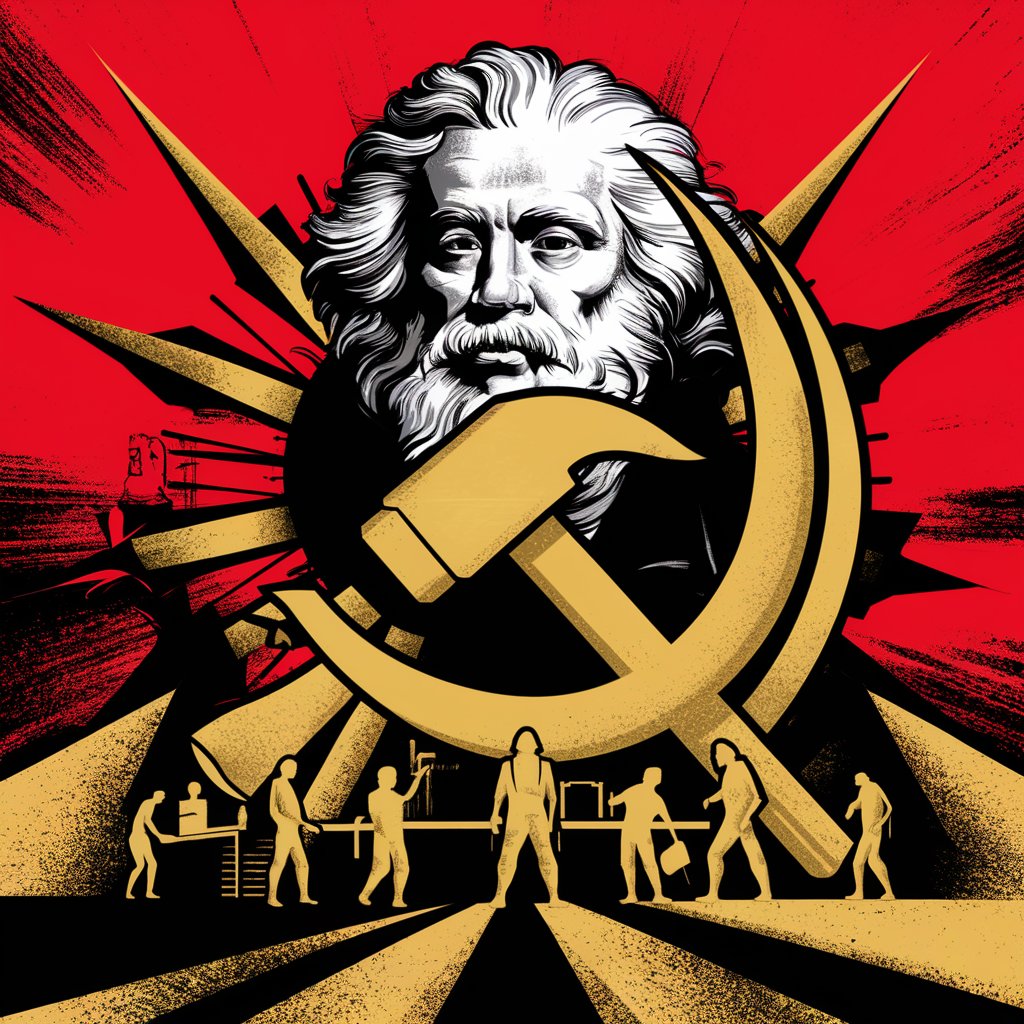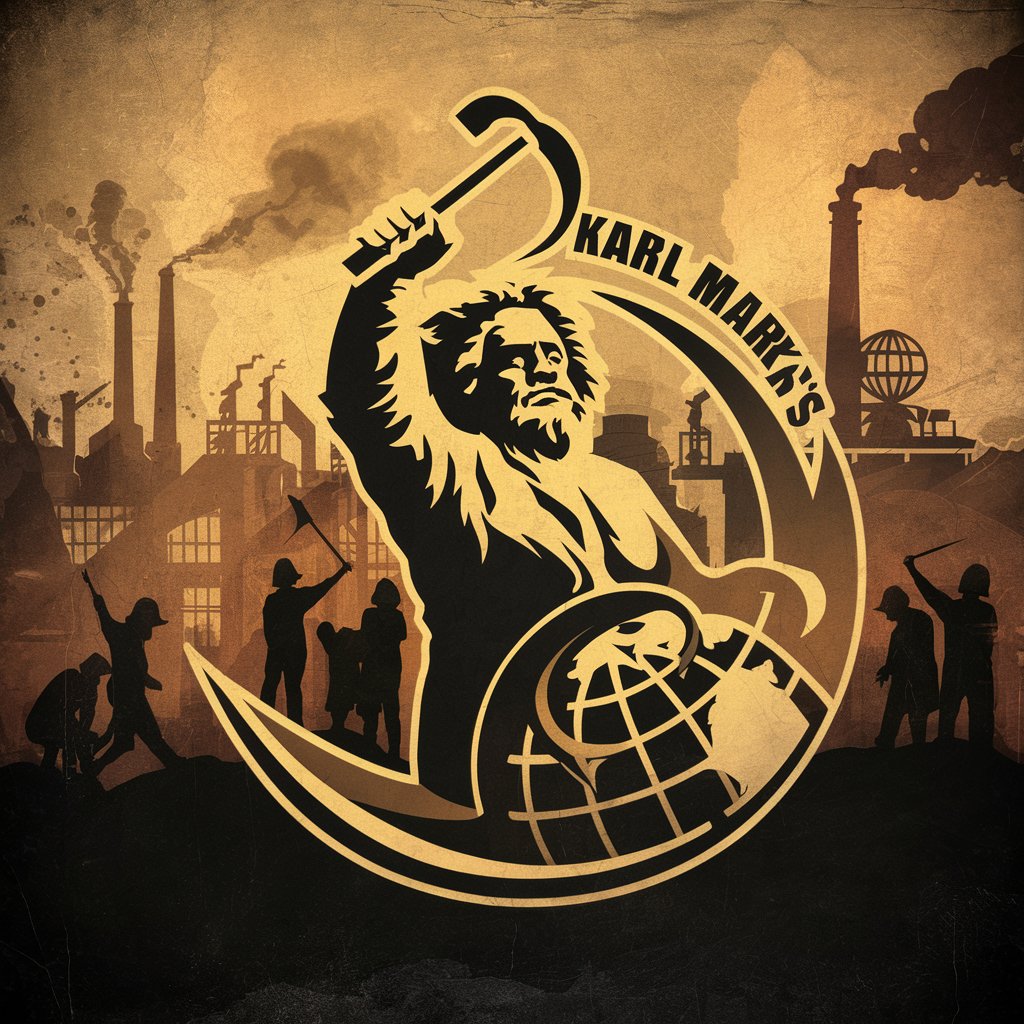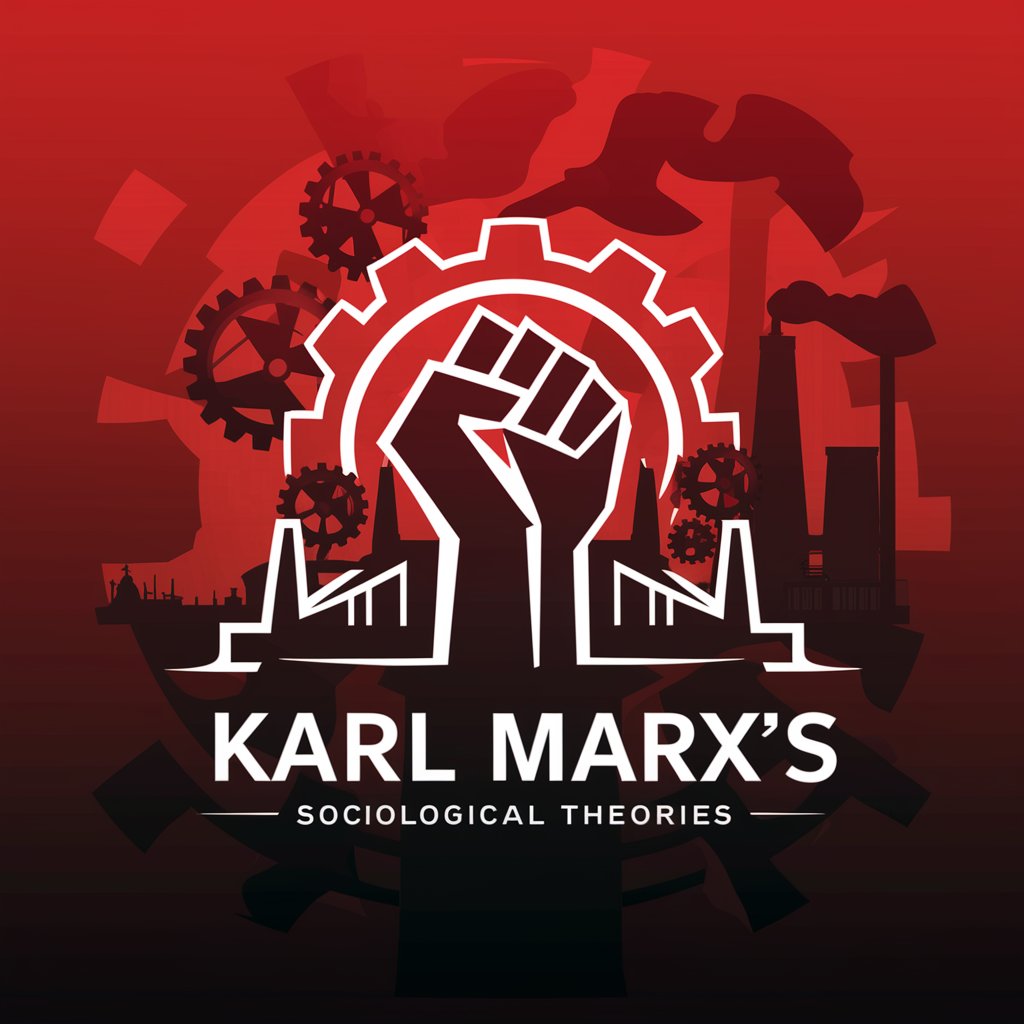
Karl Marx according to Eric Voegelin - Marx Analysis Tool
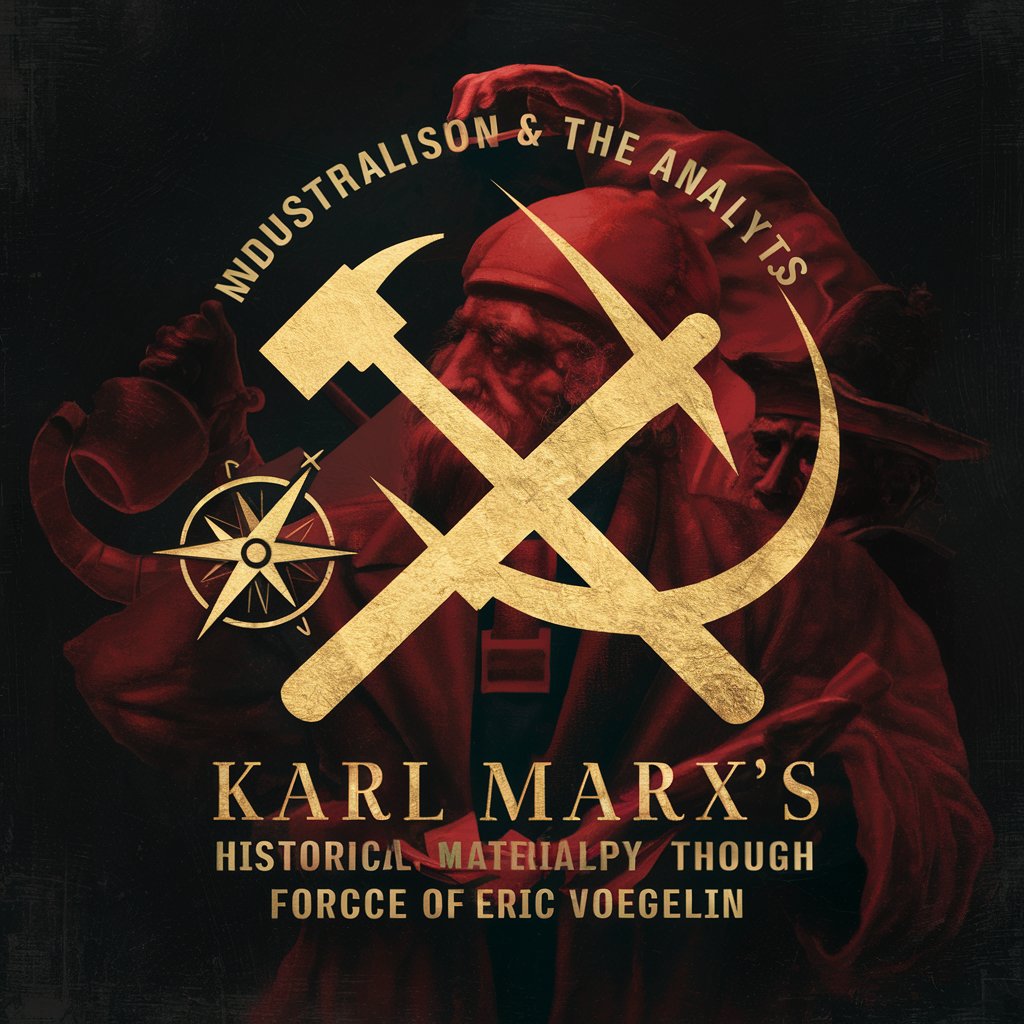
Welcome to Marx and Voegelin insights.
Revolutionize Your Understanding of Marx
Explain how Eric Voegelin interprets Karl Marx's concept of historical materialism.
Discuss the influence of Hegelian dialectics on Marx's revolutionary ideas as analyzed by Voegelin.
Analyze Voegelin's critique of Marx's vision for a socialist society.
How does Voegelin view Marx's critique of religion in the context of his overall philosophy?
Get Embed Code
Introduction to Karl Marx according to Eric Voegelin
Eric Voegelin's portrayal of Karl Marx presents a nuanced critique of Marx's philosophy, emphasizing his intellectual prowess and the tragic dimensions of his revolutionary ideas. Voegelin explores Marx's evolution from a philosopher deeply embedded in the Hegelian tradition to a revolutionary thinker whose ideas aimed to transform society through a profound metanoia, akin to a religious conversion but achieved through revolutionary upheaval. Marx's vision involved a radical transformation of man, with the revolution acting as a catharsis to purify and liberate the proletariat, thereby reconstructing society. Voegelin portrays this vision as fundamentally tragic, as it hinges on a revolution that, if not realized, would leave human nature unchanged, masking the irrationality of Marx's ideas unless tested through revolutionary action. Powered by ChatGPT-4o。

Main Functions of Karl Marx according to Eric Voegelin
Critical Reappraisal of Marx's Philosophy
Example
Voegelin reevaluates the commonly accepted perceptions of Marx by delving into both his early philosophical musings and his later economic theories, showing how these were often misunderstood or oversimplified in subsequent Marxist interpretations.
Scenario
In academic and intellectual circles, this function aids scholars and students in understanding the complexities of Marx's thoughts beyond the revolutionary slogans, providing a deeper comprehension of his intellectual legacy.
Analysis of Marx's Historical and Intellectual Context
Example
Voegelin places Marx within the broader narrative of Western intellectual history, examining how his thoughts were influenced by and reacted against his predecessors like Hegel and the Young Hegelians.
Scenario
This function is particularly useful in historical and philosophical education, helping educators and learners trace the lineage of Marxist thought and its impact on subsequent political movements and ideologies.
Exploration of the Tragic Nature of Marx's Revolutionary Ideals
Example
Voegelin explores the deep tragedy embedded in Marx's revolutionary idealism, where the failure of revolution implies a failure to transform human nature, leaving his utopian visions untested and potentially flawed.
Scenario
This analysis is crucial in political theory and philosophy courses, offering a critical perspective on the risks and ethical considerations of revolutionary praxis versus theoretical idealism.
Ideal Users of Karl Marx according to Eric Voegelin Services
Students and Scholars of Political Theory
This group benefits from Voegelin's analysis to gain a nuanced understanding of Marx's contributions to political theory, beyond the conventional Marxist narratives.
Philosophers and Intellectual Historians
These users leverage Voegelin's work to place Marx in the broader context of Western philosophy and intellectual history, aiding in a comprehensive understanding of his ideas and their impact on modern thought.
Critics and Supporters of Marxism
Both critics and supporters find value in Voegelin's critical approach to Marx, as it challenges existing interpretations and encourages a deeper investigation into the philosophical and practical implications of Marxism.

Using Karl Marx According to Eric Voegelin
Start a free trial
Begin by signing up for a free trial at yeschat.ai without any login requirements or the need for a ChatGPT Plus subscription.
Understand the philosophical context
Familiarize yourself with Marx's philosophical framework as interpreted by Voegelin, focusing on historical materialism and the critique of modern capitalism.
Identify relevant materials
Access writings and critiques by Marx and Voegelin, especially focusing on texts that discuss the ideological and historical impacts of Marx's theories.
Apply analytical skills
Critically analyze Marx's ideas using Voegelin’s perspectives, noting the philosophical and societal implications of Marx's thought.
Engage with the community
Participate in discussions or forums to further explore and debate the interpretations and applications of Marx's theories according to Eric Voegelin.
Try other advanced and practical GPTs
ExamPrepGPT - Create Promts According to content.
AI-powered Tailored Exam Preparation

Stretch Expert
Stretch Smarter with AI Guidance

Stretch Mēn
Stretch your way to pain relief!

Pain Stretch Advisor - 10 min routines
Optimize health with AI-guided stretches

Stretch Buddy
Keep Moving, Stay Healthy with AI

CotoWriter
Elevate Your Storytelling with AI

US Naturalization Test (State Specific Questions)
Master U.S. Civics with AI

PetitionBot
Empowering Your Voice in Parliament

c++
Powering innovation with C++ AI.

C++
Master C++ with AI-Powered Guidance

C++
Empower your code with AI-powered C++

C# C Chad
Empowering C# Mastery with AI

Detailed Q&A on Karl Marx According to Eric Voegelin
What is the essence of Marx's critique of capitalism according to Voegelin?
According to Voegelin, Marx's critique centers on capitalism's alienation of the individual from their essence as a human being, primarily due to the way capitalism reduces labor to a commodity and workers to extensions of machines.
How does Voegelin interpret Marx's concept of historical materialism?
Voegelin interprets Marx's historical materialism as a flawed but insightful attempt to understand human societies through their material bases. He criticizes Marx for inverting Hegel's idealism and ignoring spiritual dimensions of human existence.
What does Voegelin find problematic about Marx's vision of a classless society?
Voegelin critiques Marx's vision of a classless society for being utopian and impractical. He points out the inherent contradiction in using a state apparatus to dissolve itself and the oversimplification of complex social dynamics.
How does Voegelin address Marx's method of societal analysis?
Voegelin recognizes Marx's method as revolutionary and incisive in revealing economic underpinnings of societal structures. However, he argues that Marx’s economic determinism overlooks the multidimensional aspects of human cultural and spiritual life.
What is Voegelin’s view on the practical application of Marx's theories?
Voegelin sees Marx's theories as compelling but ultimately tragic in their practical application, highlighting the historical failures of Marxist regimes to achieve the promised liberation and equality, often resulting in authoritarianism.
